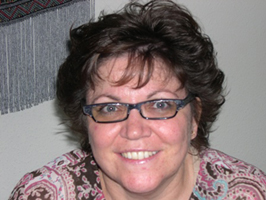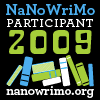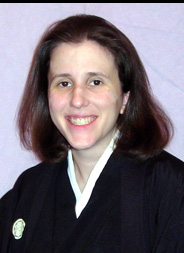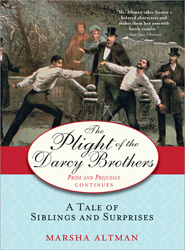 Monica Fairview, author of The Other Mr Darcy, was gracious enough to answer a few questions allow me to share her answers. Her book was released on October 1st and is now in stores. I reviewed The Other Mr. Darcy on my blog last month on September 23rd.
Monica Fairview, author of The Other Mr Darcy, was gracious enough to answer a few questions allow me to share her answers. Her book was released on October 1st and is now in stores. I reviewed The Other Mr. Darcy on my blog last month on September 23rd.
Drawing:
I’ll be giving away one copy of The Other Mr. Darcy. The winner will be chosen from those who have commented on this post and live within the US or Canada. The winner will be chosen from those who comment on October 16th.
Interview with Monica Fairview:
What drew you to Caroline Bingley? She’s not a very sympathetic character in Pride and Prejudice and most follow on books center on the P&P main characters, what was it about Caroline that called to you to give her a chance at happiness?
I see Caroline as an underdog in Pride and Prejudice. Elizabeth waltzes in and steals Mr. Darcy from right under her nose, and to add insult to injury, everyone gets to hate Caroline because she wanted Darcy in the first place. I kept thinking about Caroline and the kind of labels people attach to her such as “evil” and “witch” and other less polite terms, and my feminist instincts came to the fore. Why is Caroline the scapegoat in this story? She doesn’t do anything that Darcy doesn’t do. Darcy snubs Elizabeth and makes snide remarks about her family (“I’d sooner call her mother a wit,” he says), separates Bingley from Jane, and has plans to marry well. Caroline doesn’t do anything worse than that. Yet Darcy is forgiven, because he comes to love Elizabeth, but Caroline isn’t. There’s a much worse villain in Pride & Prejudice: Wickham. And yet you don’t hear people call him names.
So I wanted to give Caroline a voice. It’s as simple as that.
 I was a bit surprised that Mr. Robert Darcy was American. It can be assumed that there are European D’Arcys, so why put a branch of the family in American?
I was a bit surprised that Mr. Robert Darcy was American. It can be assumed that there are European D’Arcys, so why put a branch of the family in American?
I didn’t even think of the European D’Arcys because I was looking for a specific type of hero. Robert Darcy’s father left England because he was an odd person out. He couldn’t live with the expectations of being a gentleman. He was a businessman, and since engaging in trade wasn’t quite respectable, he needed to go elsewhere. Robert Darcy, too, is a sort of rebel. He does his own thing, even though as a Bostonian whose mother comes from a Brahmin background (though that word wasn’t used until later), he’s been raised very much like an English gentleman. So he’s capable of seeing two sides of the coin. Because of that, he can help Caroline see what’s wrong with her own lifestyle. Plus, he won’t look down on her for being in “trade.”
In addition, I have an underlying theme in the novel about “otherness” and how easily one can become alienated from society. Britain is at war with America at the time the novel takes place. Robert is caught behind enemy lines, so to speak, although the English at the time were more interested in the war with Napoleon than what was happening in the former colonies. But it forces him to examine his own identity. As a Darcy, he is part of the upper class in England. But as an American, he has supposedly moved away from such distinctions. It was fascinating to explore the contradictions inherent in the social systems. Through Robert I was able to look at the differences between the New World and the Old, and to explore the question of the newly established American identity of the time.
Because Robert is actually trying to define his own identity, his journey of self-awareness runs in a way parallel to Caroline’s, who also learns some hard lessons about her own role in society, both from a class perspective and as a woman.
One of the main problems of writing a follow on book from any of Jane Austen’s works, is “how true must I stay to the characters she developed as I bring them into a new adventure.” Did you feel that keeping the main character traits caused you any problems in moving in the direction you wanted to go? Did it cause any problems in your filling out Caroline’s growth and change?
Yes, it’s very hard – you do have to stay true to the characters. And you have to be very disciplined. I found it very restrictive, in some ways, but I also found I learned so much about the craft of writing from Jane Austen. She’s amazing, really, not only because of Darcy or Elizabeth but because she’s so very subtle. And then trying to adopt Jane Austen’s characters and move them into the new context was a huge challenge. I enjoyed it tremendously, though. Some Austenesque writers solve the problem of keeping the characters true by using actual quotes from P&P. I couldn’t do that, because I wasn’t presenting things from the same angle. I did use a lot from P&P to fill in Caroline’s background, but by the beginning of The Other Mr. Darcy Caroline had already changed in some ways. She’d been in love, and she’d been badly hurt. I was therefore able to have her stay true to her character, but at the same time I was able to show her as vulnerable, too, for two reasons: 1) because of the pain she went through and 2) because Robert Darcy has watched her fall to pieces, and she feels almost in his power.
I think when it comes to the other characters, the Bennets, for example, I’ve stayed as true to P&P as I could while at the same time putting them into different contexts. I studied the speech patterns of each of the characters very closely, and tried not to have them say anything that didn’t seem to fit. I’ve known P&P since I was about thirteen, and have read it so many times I have sections of it memorized. That definitely helped.
When not reading or researching the Regency period for your books, what type of books do you like to read — what are the last five books you read just for fun?
I noticed that you featured Connie Willis on your site. I just (re)read Passage, which I think is brilliant, though probably the word “fun” doesn’t apply here. I love her writings. I also love Cherryh’s Foreigner series, because I love the way she deals with cultural issues. For fun, to get out of the Regency world I seem to eat, drink and breathe, I read SF, especially by women writers, though I don’t read as much of it these days as I used to since it seems to have gravitated towards horror, which is not my genre, even though it’s enormously fashionable. I’ve been reading some British romantic comedy writers such as Julie Cohen’s Girl From Mars, Phillipa Ashley’s Decent Exposure, and Jill Mansell who is now being published by Sourcebooks. I read veraciously.
Most people are interested in writers and their lives, so what’s a typical writing day like for you?
I dream of something to write, then I wake up and start scribbling frantically onto bits of paper. Actually, not true, though sometimes that does happen. Not the dreaming part, but the bit where I wake up with a dialogue or scene in my head that I have to write down or I lose it. But otherwise, my working day is quite mundane. I usually turn on my computer when I wake up to give it a chance to do all the updates and come up with all the delays it possibly can, then do school drop-off. Next I procrastinate by checking e-mails, facebook, twitter, etc. When I have no more excuses left, I have to start writing. It’s really like any job, except it’s a lot more fun. I have to take into account my child’s schedule. I usually stay up late to write because that’s a quiet, peaceful time with fewer interruptions.
Has the reaction to The Other Mr. Darcy held any surprises for you? Anything you didn’t expect?
Not so far. I’m sure there will be some surprises, though. The Other Mr. Darcy is a bit different from many of the Austen-inspired novels out there.
Thanks for your time!
Thank you! I’m delighted to have had this chance to share my thoughts and books with you and your readers.
The Other Mr. Darcy—in stores October 2009!
Did you know that Mr. Darcy had an American cousin?!
In this highly original Pride and Prejudice sequel by British author Monica Fairview, Caroline Bingley is our heroine. Caroline is sincerely broken-hearted when Mr. Darcy marries Lizzy Bennet— that is, until she meets his charming and sympathetic American cousin…
Mr. Robert Darcy is as charming as Mr. Fitzwilliam Darcy is proud, and he is stunned to find the beautiful Caroline weeping at his cousin’s wedding. Such depth of love, he thinks, is rare and precious. For him, it’s nearly love at first sight. But these British can be so haughty and off-putting. How can he let the young lady, who was understandably mortified to be discovered in such a vulnerable moment, know how much he feels for and sympathizes with her?
About the Author:
As a literature professor, Monica Fairview enjoyed teaching students to love reading. But after years of postponing the urge, she finally realized what she really wanted was to write books herself. She lived in Illinois, Los Angeles, Seattle, Texas, Colorado, Oregon and Boston as a student and professor, and now lives in London. To find out more, please visit http://www.monicafairview.co.uk/


 Monica Fairview, author of The Other Mr Darcy, was gracious enough to answer a few questions allow me to share her answers. Her book was released on October 1st and is now in stores. I reviewed
Monica Fairview, author of The Other Mr Darcy, was gracious enough to answer a few questions allow me to share her answers. Her book was released on October 1st and is now in stores. I reviewed 
 Okay, I’ve just got to let off some steam. I’ve been using computers for years. I’ve built them. I’ve coded the programs that run on them. I’ve been technical support. I’ve even taught classes on how to use them and how to use software on them. But it fries my cookies how many people who send email daily can’t seem to grasp the importance of having a good clear subject line.
Okay, I’ve just got to let off some steam. I’ve been using computers for years. I’ve built them. I’ve coded the programs that run on them. I’ve been technical support. I’ve even taught classes on how to use them and how to use software on them. But it fries my cookies how many people who send email daily can’t seem to grasp the importance of having a good clear subject line. I’m the author of
I’m the author of  A prime example is the first book, which got a lot of criticism for having Darcy be a lush and therefore the butt of several jokes while in college. I didn’t think making Darcy a lush was at all negative to his character. You work up a tolerance for alcohol by drinking a lot, and Regency gentlemen drank more than a lot. The idea that Darcy has a lower tolerance means that he is very conservative in his alcohol consumption, perhaps fearing that a slovenly image would harm his family name (which is so clearly important to him in Austen’s work), and as a result he doesn’t have much of a tolerance compared to his peers, so when he does drink, he gets very drunk quickly. Since Darcy lives on his high horse, his college friends (and Wickham, of course) take any advantage they can get to knock him off it. In other words, he’s so virtuous that people enjoy seeing him knocked down a peg, albeit in a friendly way. I felt it was an amusing way to soften Darcy, but some readers didn’t agree, as Darcy is not supposed to be ridiculous. I can see their point, but it’s the story I wanted to write, so I wrote it.
A prime example is the first book, which got a lot of criticism for having Darcy be a lush and therefore the butt of several jokes while in college. I didn’t think making Darcy a lush was at all negative to his character. You work up a tolerance for alcohol by drinking a lot, and Regency gentlemen drank more than a lot. The idea that Darcy has a lower tolerance means that he is very conservative in his alcohol consumption, perhaps fearing that a slovenly image would harm his family name (which is so clearly important to him in Austen’s work), and as a result he doesn’t have much of a tolerance compared to his peers, so when he does drink, he gets very drunk quickly. Since Darcy lives on his high horse, his college friends (and Wickham, of course) take any advantage they can get to knock him off it. In other words, he’s so virtuous that people enjoy seeing him knocked down a peg, albeit in a friendly way. I felt it was an amusing way to soften Darcy, but some readers didn’t agree, as Darcy is not supposed to be ridiculous. I can see their point, but it’s the story I wanted to write, so I wrote it.